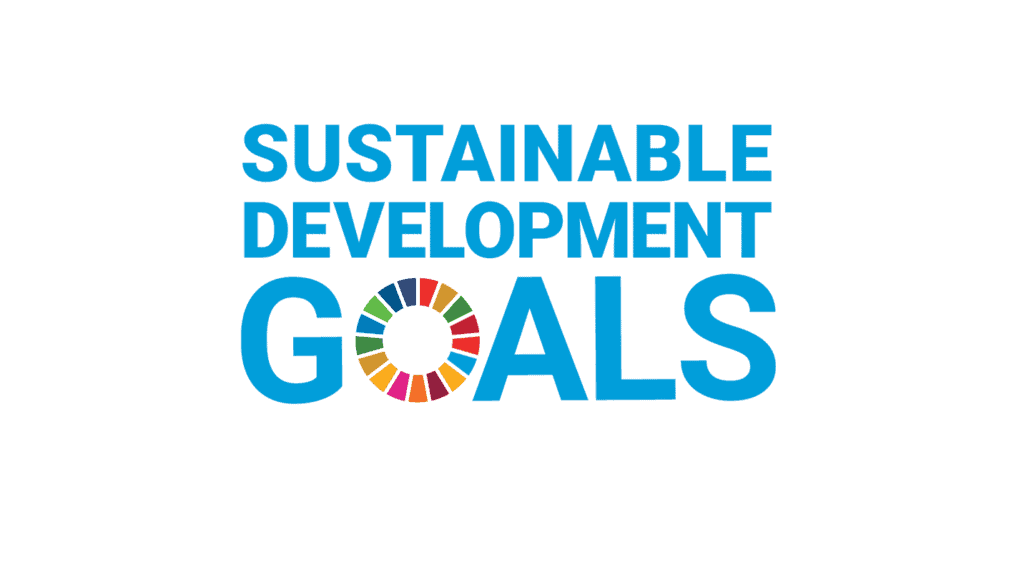

In 2015 all members of the United Nations adopted the 2030 Agenda of Sustainable Development. This agreement provides a shared blueprint for peace and prosperity for people and the planet, now and into the future. Within this agreement, there are 17 Sustainable Development Goals (SDG’s). Each of these goals is an urgent call for action by all countries for a global partnership to improve health, and education, reduce inequality and encourage economic growth. It is recognised that to help in all these areas, we must put an end to poverty and other deprivations and create strategic plans in line with the agenda.
The 17 Sustainable Development Goals have been built on decades of work by all countries and the UN, including the UN Department of Economic and Social Affairs.
We’ve chosen some of the UN Sustainable Development Goals and explained what they mean to us, we’ve tried to share examples of what actions and choices some of our clients are making as well.
We’ve also found this useful guide from the UN SDG webpages called The Lazy Person’s Guide to Saving the World which gives lots of ideas for actions to take at home and at work – have a look through and see if there are any changes you can make!
Goal No 3 – Good Health & Wellbeing
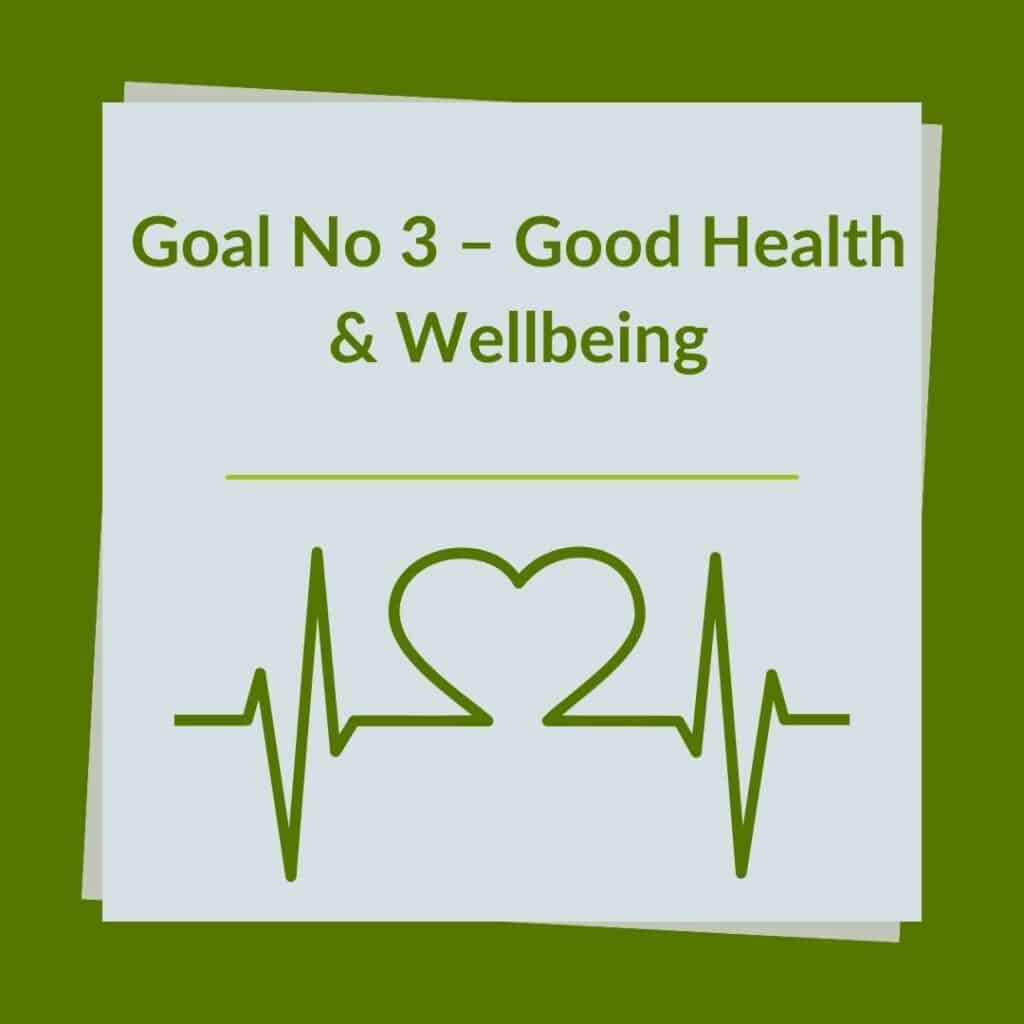
To ensure healthy lives and promote well-being for all at all ages.
The unprecedented pandemic that COVID-19 shook the world with has left staggering statistics and a need to ensure that the future of our well-being is at the forefront of our minds. With millions of people affected by COVID-19 worldwide, this has drastically disrupted essential health services, resulting in global life expectancy declining, the backlog of immunisations, increased anxiety, depression, and mental health issues, as well as an increase in tuberculosis and malaria deaths.
In this situation it is difficult to know where to find the positives, so we love the fact that one of our clients are directly involved in good health and wellbeing. @GraceandGreen are a great example, @GraceandGreen are a ethical and sustainable period product provider who are based in Bristol - we are currently helping them implement a quality management system and it is a pleasure to work with a business which is completely committed to their values and demonstrates this in daily decision making across the business.
Goal No 8 – Decent Work and Economic Growth
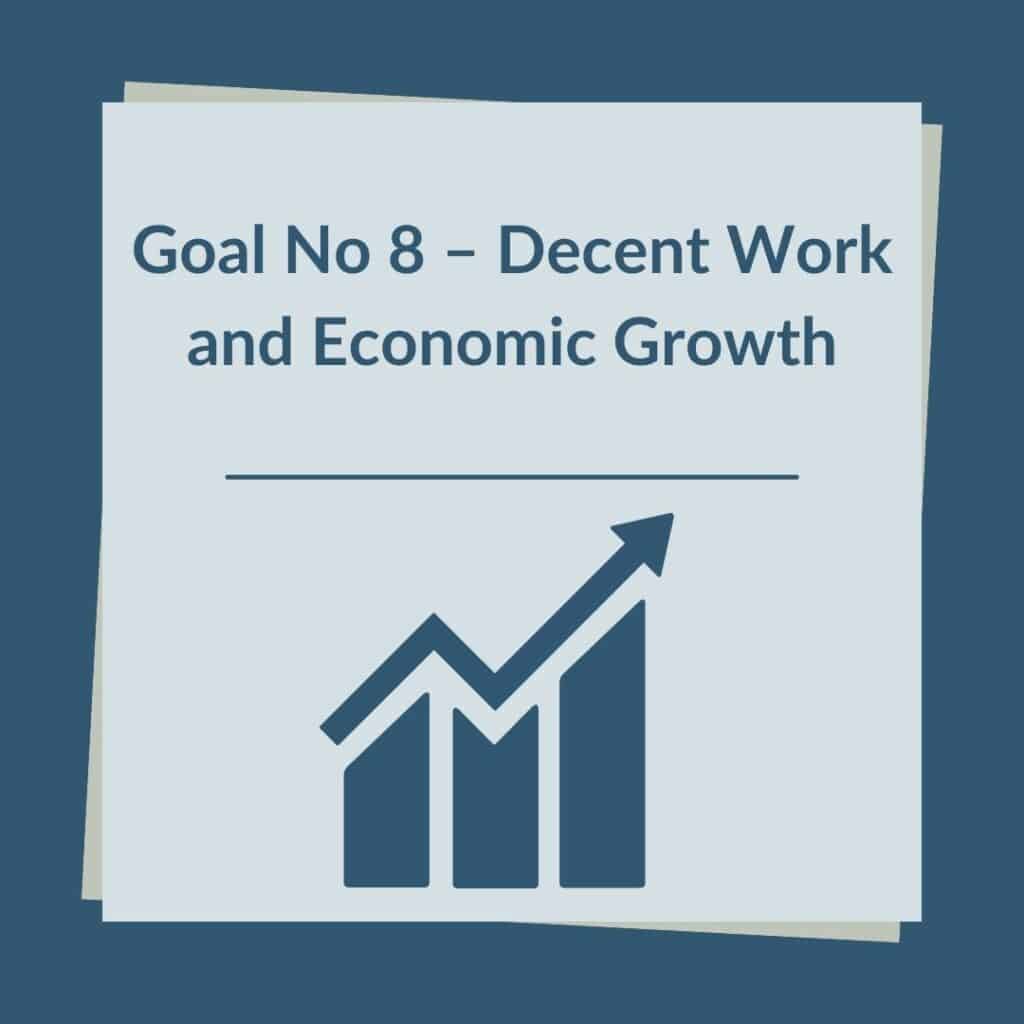
To promote sustained, inclusive, and sustainable economic growth, full and productive employment, and decent work for all.
It feels that we are lurching from one crisis to another, Brexit followed by Covid, followed by political uncertainty and chaos, followed by Russian's invasion of Ukraine, followed by the cost-of-living crisis... The global economy is under high level of strain and businesses are all struggling with supply chain issues and disruptions, labour shortages and the problems of operating in a VUCA (volatile, uncertain, complex, and ambiguous) world.
Our clients are no different and our manufacturing clients in particular have struggled with prices rising exponentially in the supply chain (sometimes literally increasing daily) and lead times increasing which is affecting delivery times to customers. We have been supporting our clients by using the 'context' management tools we have at disposal with regular reviews of SWOT and PESTLE analyses and close monitoring of risk registers and action logs.
Goal No 9 – Industry, innovation, and infrastructure
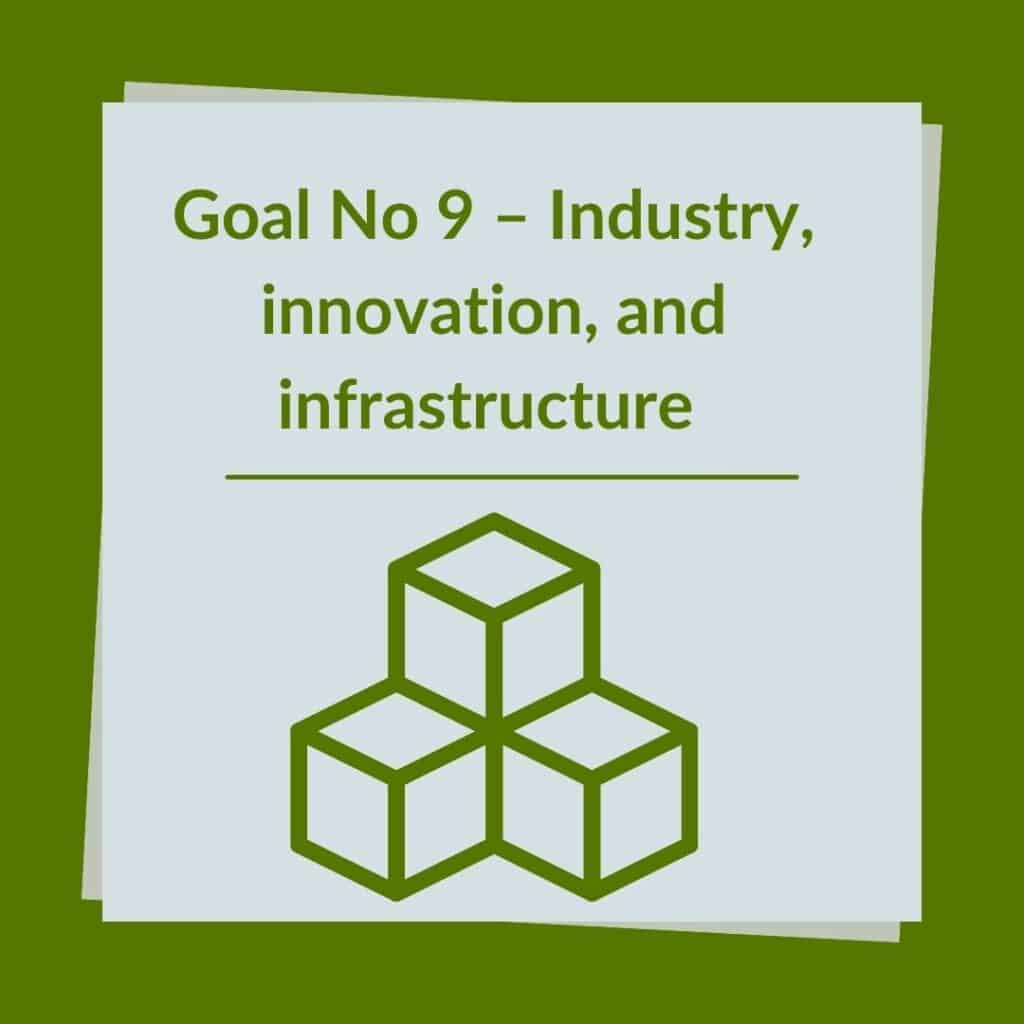
To build resilient infrastructure, promote inclusive and sustainable industrialisation and foster innovation.
The pandemic has had a huge impact on industry, particularly in manufacturing. We are very fortunate that the majority of our manufacturing clients have survived and grown during the pandemic but all of them have faced significant disruption to supply chains with longer lead times and higher prices.
Post-pandemic many industries are trying to move from a responsive 'just in time' ethos to a resilient 'just in case' ethos to increase resilience, but this has huge cost and cash flow implications, particularly for small businesses. One of our clients has tripled the amount of raw materials they hold due to long lead times and not being able to meet customer delivery dates. This has been effective but means that triple the amount of cash is literally sat on the shelf and they also need triple the space to store it all in!
Goal No 11 – Sustainable cities and communities
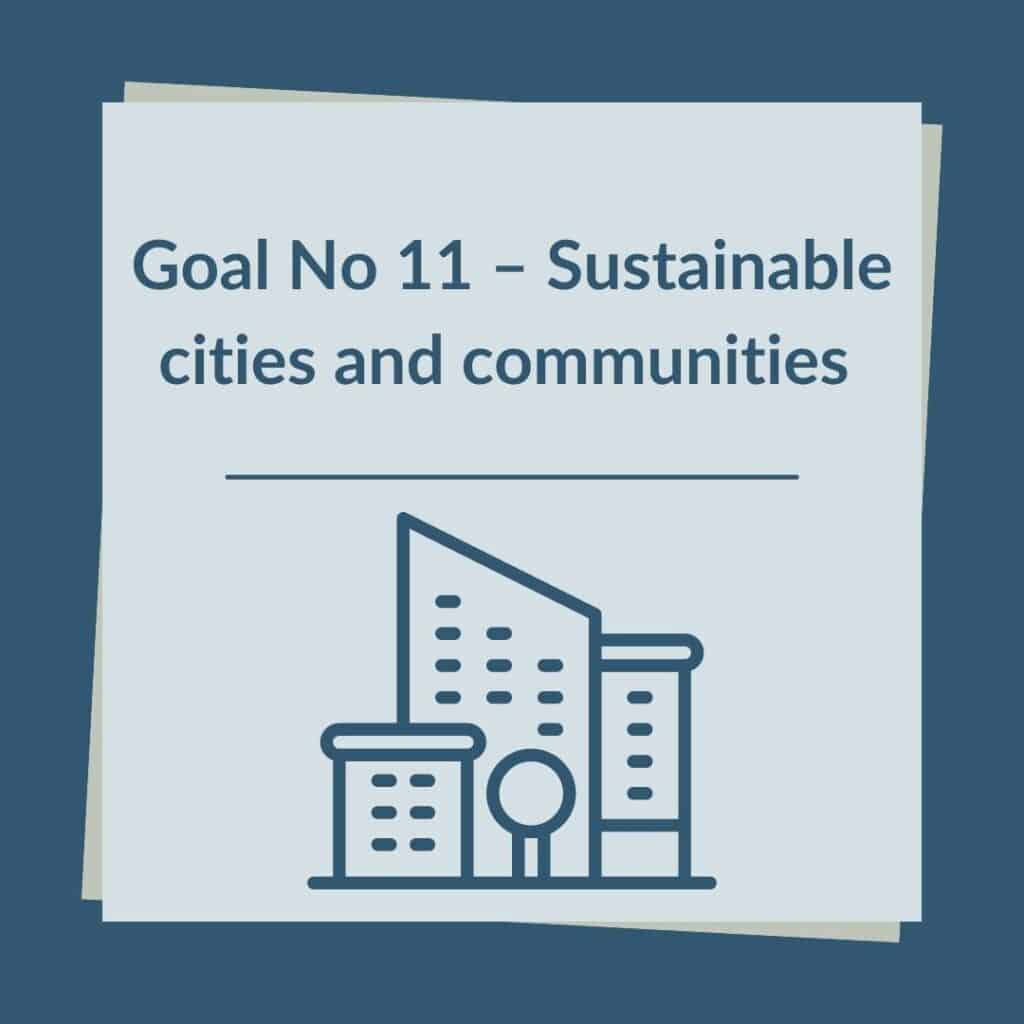
To make cities and human settlements inclusive, safe, resilient, and sustainable.
We all live and work in communities and everybody would like to choose to live and work in a healthy and safe place - however there are huge numbers of people who are not able to do this, did you know that there are a staggering 1 billion slum dwellers across the world? Or that 99% of the world's urban populations breath polluted air?
Having already looked at business travel and how to reduce it, several of our clients are now starting to look at the way people get to work as part of their sustainability focus. City centre locations certainly make it easier to provide more options - one of our clients in Bristol is encouraging employees to use the train or bus, or to walk or bike rather than using their cars. There is very limited car parking on site, but plenty of secure bike parking with excellent facilities for having a shower, getting changed and storing clothes. There is also a 'bike fixing cupboard' containing pumps, inner tubes, allen keys and other useful bike fixing related items!
What transport options do you have to get to work? Can you leave the car at home?
Goal No 12 – Responsible Consumption and Production
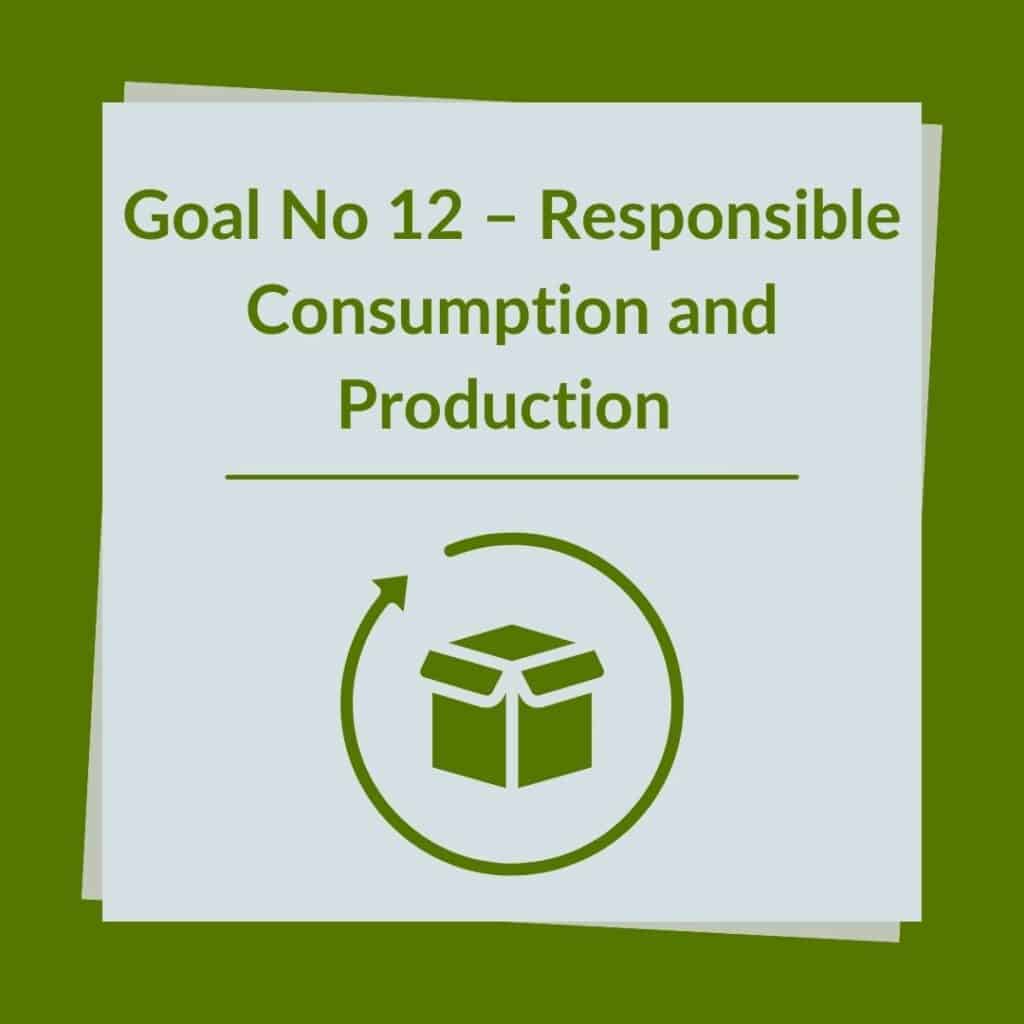
To ensure sustainable consumption and production patterns.
In today’s society, there is a huge increase in the unsustainable patterns of consumption and production, which are the root cause of the “Triple Planet Crisis” – climate change, biodiversity, and pollution.
Buying things costs money - but throwing them away cost’s money too - especially if you are a business paying commercial waste management fees, so it feels like a no brainer to reduce waste as far as possible. Some ideas from our existing clients are:
- Baling cardboard and shrink wrap waste, keeping the bales dry and selling them
- Trying to hold very efficient stock levels (admittedly difficult at the moment with extended lead times and rapidly changing prices)
- Proper labelling and management of raw materials - particularly things with a shelf life. One of our clients has started writing the 'opened on' date on tins of a particular chemical
- Refurbishing workspaces with re-used items rather than buying new, this is a great way of re-using items that somebody else has finished with and reducing the amount of rubbish going to landfill
We all need to think more carefully about what we choose to buy and the ways we choose to dispose of it when we have finished with it.
Can it be sold?
Can it be given away?
Can somebody else use it? Can it be recycled?
Preventing items and materials going to landfill or incineration is so important.
Goal No 13 – Climate Action
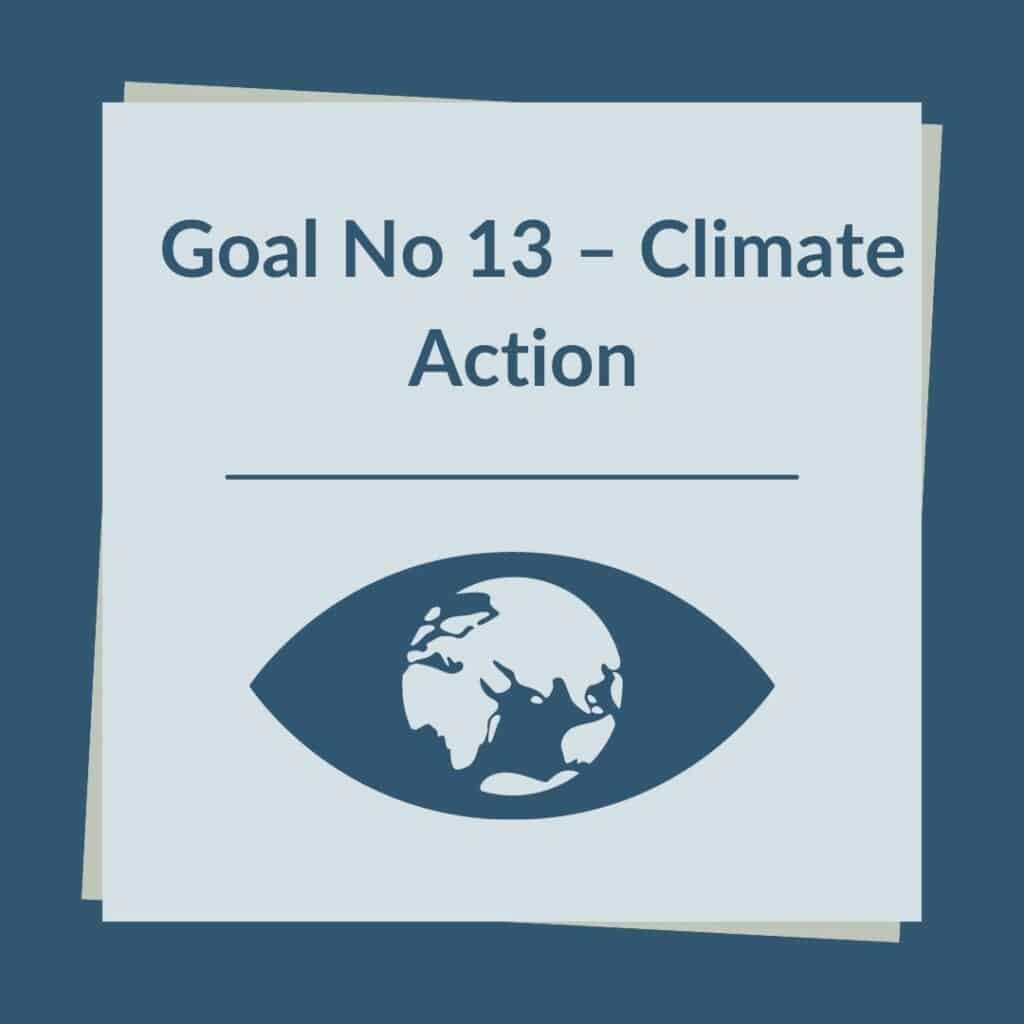
Take urgent action to combat climate change and its impacts.
Climate change is humanity’s “code red” warning, and the window of opportunity to reduce the effects is getting smaller by the day.
Climate change and the associated temperature rises are humanity's Code Red warning and our window to avoid climate catastrophe is closing rapidly.
Our beautiful coral reefs are affected by the rise in temperatures, sea levels are rising, droughts are increasing the risk of displacing millions of people, and large-scale disasters are on the rise.
Faced with this, it feels an insurmountable challenge to make any worthwhile difference at all, however if the option is doing nothing or doing something, I'm choosing to do something. I monitor business travel and try to prioritise bike / train / car sharing over car journeys, I have attempted to work out my business carbon footprint (blog post to follow on that one) and I offset business miles every year. I also subscribe to @9treesuk.
Every business can do something, whether that is choosing a green electricity provider, installing solar panels, and measuring and reducing electricity consumption. We have clients who have:
- Refurbished their workshop roof and installed solar panels
- Calculated their carbon footprint and set targets to reduce it
- Started to monitor business travel and question what journeys are really necessary
- Started to consider the impact of their investments and pension funds on the climate crisis
Goal No 17 - Partnerships for the Goals
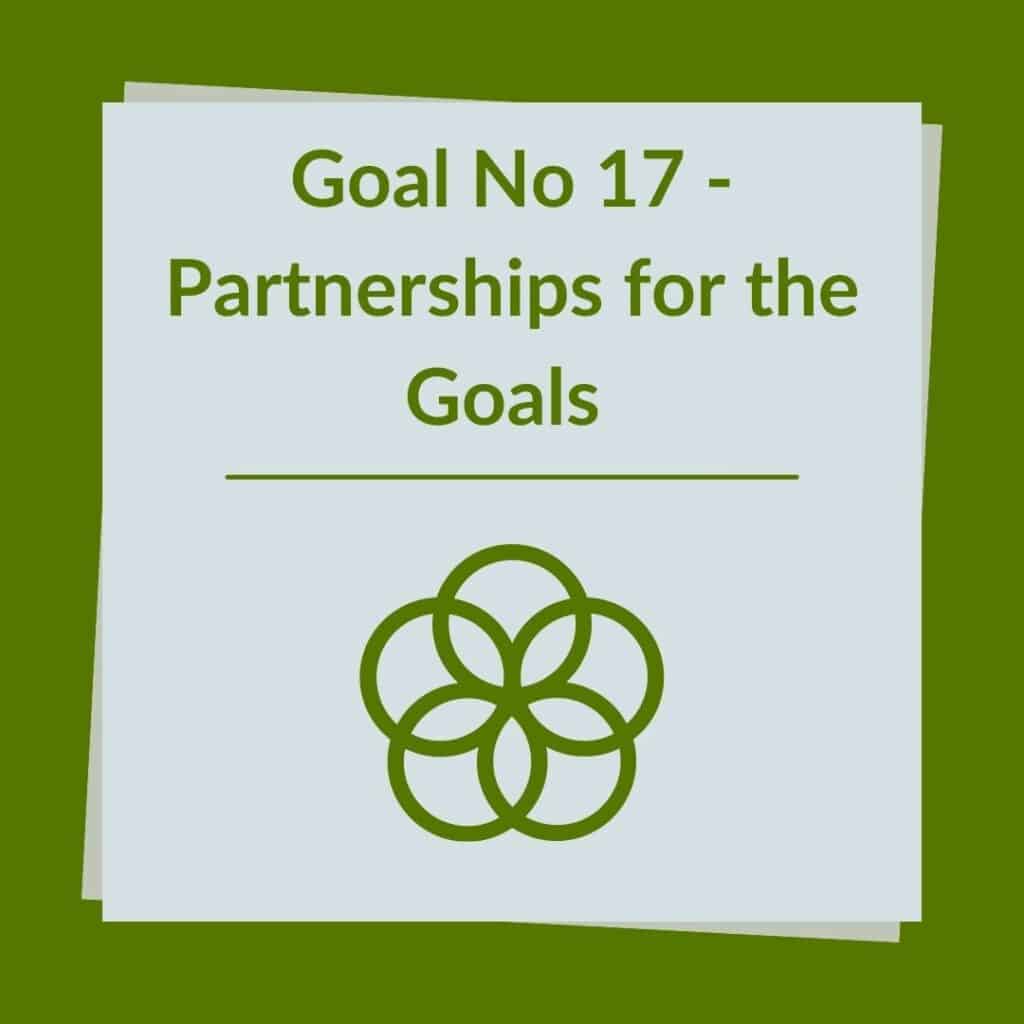
Strengthen the means of implementation and revitalise the Global Partnership for Sustainable Development.
This SDG is all about global partnerships - I don't have any control or input into those, but I am always trying to make useful introductions encourage collaborations across my clients and wider business network.
In lockdown I set up an informal networking group for professionals across quality, environment, health and safety, sustainability, cyber security, and business continuity - we called ourselves the Compliance Group and we meet on Teams every month (though the face-to-face Christmas dinner is coming up!) I have been so pleased at the amount of collaborations, introductions, support, and advice that we have all shared across the group. Not many of us can have an impact on a global scale, but we can all make a small impact on a local scale within the networks we already have.